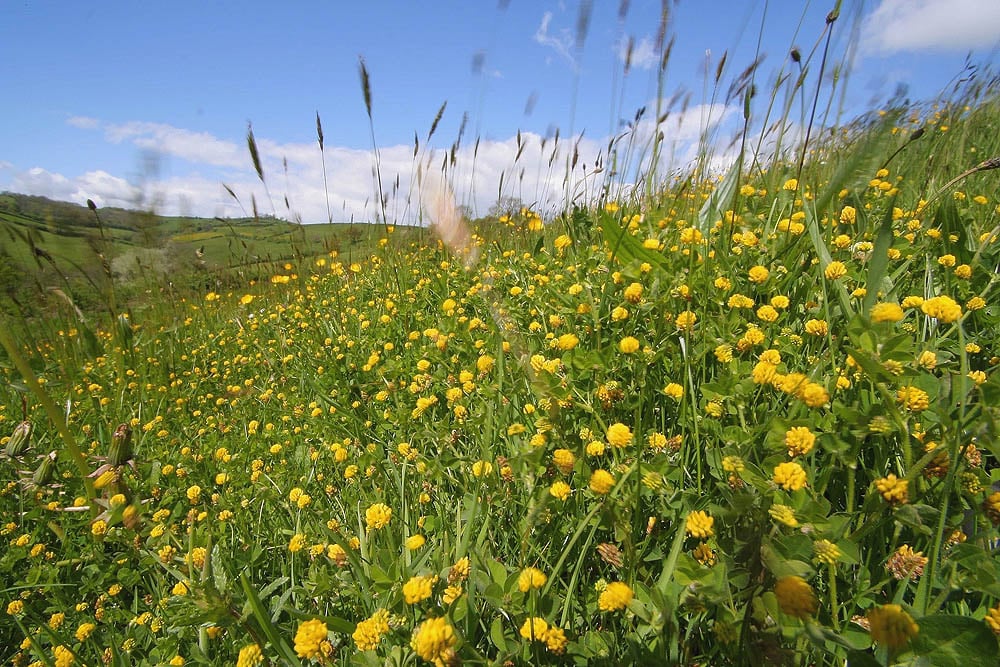Description
Black medick is a short, often sprawling plant with a compact head of bright yellow flowers and clover-like leaves. It can be distinguished from lesser and hop trefoil by its seed pods which are black and coiled when ripe and not buried within the dead flowers, and from other common medicks by the absence of spines on the pods. Flowers from April to July.
Habitat Information
Black medick is a native winter green annual or short lived perennial. It is characteristic of relatively disturbed, infertile sites on neutral or calcareous soils and is particularly adapted to south facing slopes where its long tap root allows it to exploit water resources unavailable to other species. Habitats include dry grasslands, pastures, road banks, waste places and even walls.
Black medick requires a degree of disturbance if it is to persist and can tolerate grazing or frequent cutting. It will be lost if vegetation is allowed to grow rank but its seed can remain viable in the soil for several years and it can reappear if more intensive management is reintroduced.
Growing Information
Probably best sown in the autumn. In common with many members of the pea family, Black medick seed exhibits hard-coat dormancy. If it is important to have the maximum germination rate in the shortest period of time you could try a light scarification.

